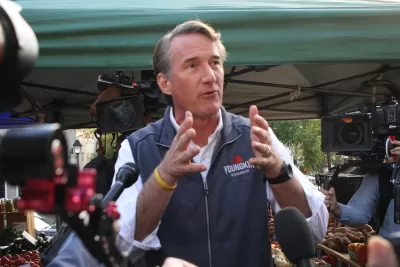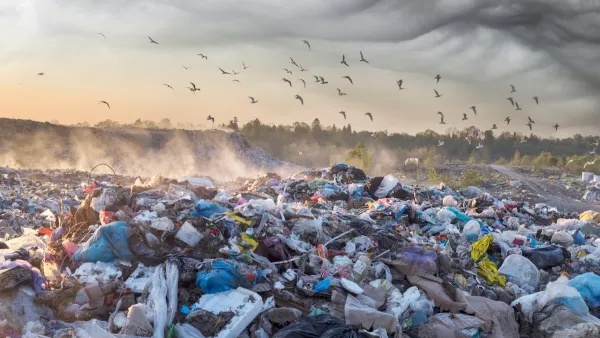New Virginia Governor Glenn Youngkin made promises on the campaign trail to reverse the state's commitment to climate reductions.

An opinion piece by Ivy Main, written for the Virginia Mercury, reports "unfortunate signs" that new Virginia Governor Glenn Youngkin is preparing to be less the moderate Republican he promised to be, and more a "burn-the-house-down extremist" on environmental policy.
The first piece of evidence for these strong words are the governor's decision on day one of his tenure to sign an executive order notifying the Virginia Department of Environmental Quality of his intention to withdraw Virginia from the Regional Greenhouse Gas Initiative. According to Main, and as detailed in a separate article by Patrick Wilson for the Richmond Times-Dispatch, Gov. Youngkin might require legislative approval from a still-Democrat-controlled State legislature to accomplish that goal.
Here's how Wilson describes the RGGI program:
Energy producers in states that participate in RGGI trade emission reductions for credits, or buy credits to emit carbon dioxide past a cap. The revenue the state gets from the program is directed to programs that help low-income people reduce energy usage — thereby lowering their cost of electricity — and for programs combating sea level rise in coastal areas.
Main's other evidence is Gov. Youngkin's decision to nominate Trump-era EPA chief Andrew Wheeler as the state's secretary of natural resources—a move that would also require approval from the State Legislature.
The source article notes that GOP legislators are following the new governor's lead, filing new legislation that would work against efforts to reduce greenhouse gas emissions in the state.
FULL STORY: The GOP offensive against climate action begins

Planetizen Federal Action Tracker
A weekly monitor of how Trump’s orders and actions are impacting planners and planning in America.

Chicago’s Ghost Rails
Just beneath the surface of the modern city lie the remnants of its expansive early 20th-century streetcar system.

San Antonio and Austin are Fusing Into one Massive Megaregion
The region spanning the two central Texas cities is growing fast, posing challenges for local infrastructure and water supplies.

Since Zion's Shuttles Went Electric “The Smog is Gone”
Visitors to Zion National Park can enjoy the canyon via the nation’s first fully electric park shuttle system.

Trump Distributing DOT Safety Funds at 1/10 Rate of Biden
Funds for Safe Streets and other transportation safety and equity programs are being held up by administrative reviews and conflicts with the Trump administration’s priorities.

German Cities Subsidize Taxis for Women Amid Wave of Violence
Free or low-cost taxi rides can help women navigate cities more safely, but critics say the programs don't address the root causes of violence against women.
Urban Design for Planners 1: Software Tools
This six-course series explores essential urban design concepts using open source software and equips planners with the tools they need to participate fully in the urban design process.
Planning for Universal Design
Learn the tools for implementing Universal Design in planning regulations.
planning NEXT
Appalachian Highlands Housing Partners
Mpact (founded as Rail~Volution)
City of Camden Redevelopment Agency
City of Astoria
City of Portland
City of Laramie





























